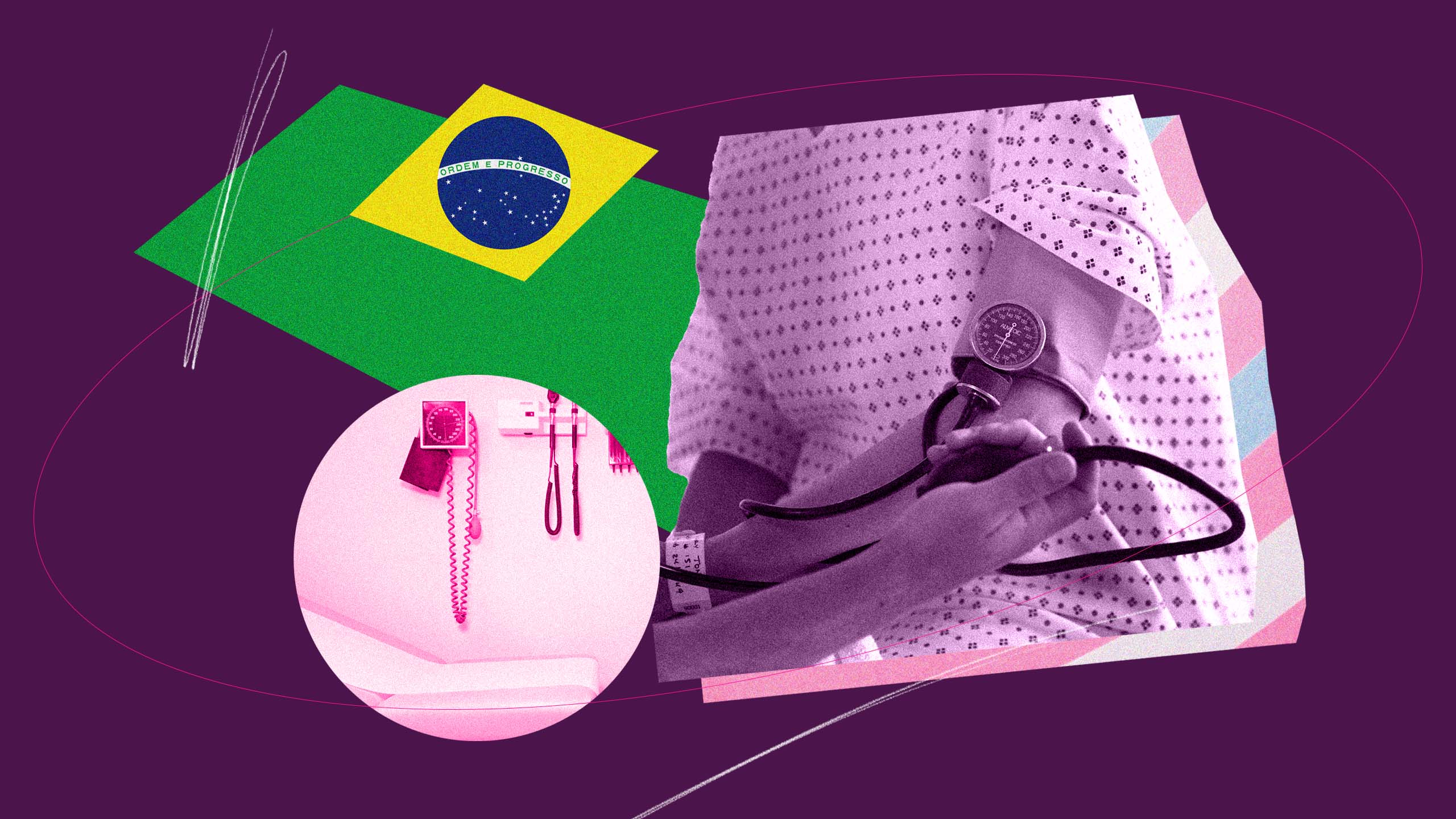When businesswoman Luiza Laiz, 69, first attended the João W. Nery Outpatient Clinic in Niterói, Brazil, she was anxious. It was 2019, and she had been referred to the clinic, which specializes in trans healthcare, by her psychiatrist to get the support she needed to discuss her gender identity. “I wanted to start using hormones, but I didn’t know the procedures,” Laiz says. She met with a social worker, a psychologist and endocrinologist to talk about her options. “Everyone was very efficient,” she says. The staff put her at ease, and made her feel safe and informed. Today, she goes back about once a month to receive hormone prescriptions and therapeutic support.
The João W. Nery Outpatient Clinic, which opened in 2018 in Niterói, a municipality in the city of Rio de Janeiro’s metropolitan area, provides medical and transition-related care for the region’s trans population. The “trans outpatient,’’ as it has come to be known by locals, gives patients access to a social worker, a psychologist, an endocrinologist, a nurse and a general practitioner who help patients with everything from attaining prescriptions for hormones to referrals for gender-affirming surgery, to advice on how to legally change their names. All services are offered free of charge.
According to the trans outpatient’s coordinator and social worker Caroline Cabral, the clinic serves about 500 registered patients who range in age from 19 to 70, most of whom are trans men. While it is only open one day a week—on Wednesdays—the clinic manages to provide about 70 appointments per month to new and returning patients .
The space is a much-needed resource in the region. According to data from ANTRA Brazil, an organization that advocates for trans people in the country, trans Brazillians are often subject to violence or discrimination. Brazil, ANTRA reports, has been the country in which the most trans people have been killed for the past 13 consecutive years. In 2021 alone, 140 trans people were murdered. Rio de Janeiro was the city with the third-highest murder rate, with 12 trans residents killed last year.
Although the Brazilian constitution guarantees access to public health for all, many trans Brazilians avoid seeking medical care out of fear they will be met with transphobic treatment—or that staff will lack the training necessary to provide them with competent care.
“It is our commitment to be the promoters of an inclusive healthcare system.”
Cabral says that education and training are essential to remedy this problem, which is why the trans outpatient clinic has done outreach to educate other medical professionals. Soon after the opening of the clinic, its staffers ran training sessions for doctors, nurses and other clinicians in Niterói to help them better understand the unique healthcare needs of trans patients. “It is our commitment to be the promoters of an inclusive healthcare system,” says Cabral.
Until more healthcare providers catch up, the trans outpatient clinic offers patients a place to go where they know they will be respected. Upon arrival, intake is done by the team in order to understand the patient’s needs. While the majority of appointments are made by people looking to access HRT for the first time, a number of patients come to seek follow-up care with the clinic’s endocrinologist and psychologist. “We have users who have been following up with us for four years since we opened the space,” says Cabral.
Daniel Costa has worked as an endocrinologist at the clinic since its inception. While he’s mostly responsible for the prescription of hormones, he adds, “I am always attentive to other medical issues as well. Sometimes I perform medical exams and, depending on the results, I may refer to other specialists to follow up.”
All clinic patients are given monthly access to a psychologist who can help them navigate any changes in mood that HRT might bring on. In cases where services are not performed at the clinic, such as gender-affirming surgeries, the team follows up with patients after the process, and keeps in regular contact with the surgeons.
Although it has become a hub for trans-affirming healthcare in the Rio de Janeiro area, the outpatient clinic also faces some challenges—the largest of which is keeping up with patient demand. Since resources for trans people in Brazil are limited, and since the clinic is only open one day a week, new patients hoping to access care typically end up on a wait-list. Fortunately, though, the average wait time is currently about two months.
Distance can also be an issue, as some patients need to travel hundreds of kilometres to access care. To help address this issue, two new separated, trans-focused clinics have recently opened near Rio: one in Cabo Frio, a city 138 kilometres away from Niterói, and another in Petrópolis, about an hour away. These initiatives have made it easier for users in these regions to make appointments since they no longer have to spend money on transportation to come to Niterói. Some more distant cities also provide buses to bring trans people to the area—with some patients travelling up to six hours.
Clinic staff hope to continue to expand their services to other parts of the country over time. They know the trans outpatient clinic represents a major advance in trans rights and equity in Brazil. For Laiz, advances like these are invaluable. “This service offered is not only important for me,” she says, “it is important for all trans people.”


 Why you can trust Xtra
Why you can trust Xtra


